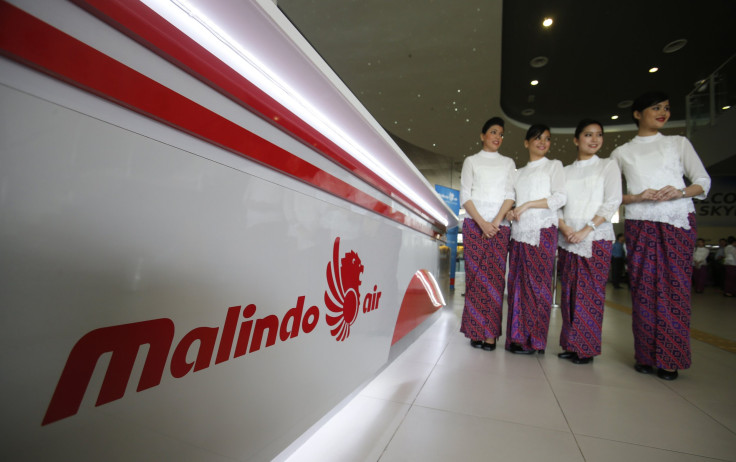Indonesia's Largest Airline Launches Low-Cost High-Service Malindo Air
Indonesian low-cost carrier Lion Air is hoping to challenge regional rival AirAsia, a Malaysian airline, by launching a startup carrier, Malindo Air, which offers premium amenities at budget prices.
Malindo Air, which inaugurated flights in March, aims to lure price-sensitive customers from AirAsia and Malaysian Airline System with hot meals, roomy seats, and touch-screen televisions, Wall Street Journal reported, amenities low-price airlines usually don't provide.

Lion Air, now Indonesia’s largest airline after launching in 2000 with only one plane, owns 49 percent stake of Malindo Air. The remaining 51 percent is owned by National Aerospace & Defense Industries, a Malaysian aircraft maintenance, repair and overhaul firm.
The Kuala Lumpur-based Malindo Air said it could afford to keep costs low because its planes are procured cheaply from Lion Air.
"Given a choice, everyone wants to fly a full-service carrier. The only limitation is price," Malindo Chief Executive Chandran Rama Muthy told Wall Street Journal in an interview on board the airline's packed inaugural flight to the eastern tourist town of Sibu from Kuala Lumpur this week.
Malindo is aiming to grab the niche market between premium and low-cost carriers. Unlike other low-cost carriers, Malindo offers business class cabins on its domestic flights, Wall Street Journal reported.
AirAsia dominates the Malaysian market and is the largest low-cost carrier in Asia. Lion Air, with the launch of Malindo, hopes to compete for AirAsia’s business.
Lion Air has expanded rapidly since its founding just over a decade ago. Last year, the company stunned the industry with record breaking orders of 230 Boeing (NYSE:BA) 737s and 234 Airbus A320 jets, flights likely will be used to fuel its regional expansion.
Malindo Air has four planes, but plans to acquire more this year.
“We’ll need more aircrafts. A total of 10 aircrafts would be delivered by September,” Chandran told Borneo Post, an Indonesian regional newspaper. The company also has plans to work closely with tourist boards in Malaysia and the rest of southeast Asia to develop tourism products.
“China and India have huge populations, and when we give them new products they are potential tourists to Malaysia,” Chandran said, according to Borneo Post.
© Copyright IBTimes 2025. All rights reserved.





















